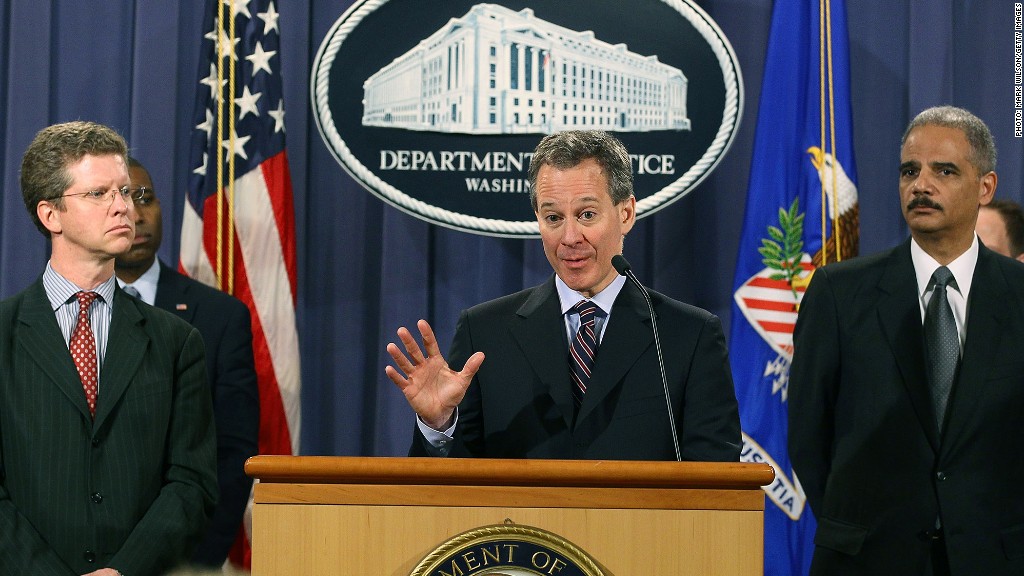
Wall Street banks should be prepared for more lawsuits, a taskforce of federal and state investigators said Tuesday.
The warning came one day after New York Attorney General Eric Schneiderman sued JPMorgan Chase-owned Bear Stearns, alleging that bankers committed systemic fraud against investors. The suit was the government's latest attempt to hold the big banks accountable for the financial crisis.
"There are more cases to come," Schneiderman said in a news conference. "We're investigating the misconduct of folks ... that brought about the crash of 2008."
The case against JPMorgan Chase (JPM) is the first by President Obama's Residential Mortgage Backed Securities working group, which was formed in January. It includes the Justice Department, the Securities and Exchange Commission, the New York Attorney General's Office, as well as the Federal Housing Administration Inspector General.
Mortgage-backed securities are financial products of home loans pooled together and sold to investors. Many of those securities became worthless when the value of homes fell precipitously after the housing bubble burst in 2007 and 2008. Many people lost homes to foreclosure in the aftermath.
Investigations since then have revealed that many banks were aware of the risks associated with the housing bubble but continued to package poor quality home loans and sell them, collecting hefty fees along the way.
During the financial crisis, large Wall Street banks loaded with the bad securities received big government bailouts. Investors who lost their money from those securities have sued the banks and some have received payouts.
Meanwhile, homeowners hurt by the financial crisis have struggled to get help. It's unclear if homeowners will receive anything from the latest government lawsuits.
The suit seeks unspecified damages and claims that risky mortgage-backed securities issued by Bear Stearns in 2006 and 2007 caused investors some $22.5 billion in losses.
The government task force has been under pressure to deliver. President Obama touted the group for holding "accountable those who broke the law," during his State of the Union address in January.
The clock is ticking for the task force. Lawsuits have to be filed within five years of the fraud. When Jan. 1 rolls around, sales of mortgage-backed securities from 2007 can't be pursued.
"As the go-go years for many alleged violations were 2006 and 2007, the ability to bring more of these suits is rapidly disappearing," said Jaret Seiberg, a financial services analyst with Guggenheim Washington Research Group, in a note for investors.
Related: Home prices may not return to peak until 2023
In the JPMorgan Chase lawsuit, Schneiderman accuses Bear Stearns of misleading investors into believing that its staff had carefully evaluated the quality of the home loans in the securities it was selling.
The suit says that Bear "systematically failed to fully evaluate the loans, largely ignored the defects ... and kept investors in the dark about both the inadequacy of their review procedures and the defects in the underlying loans."
JPMorgan bought Bear Stearns in 2008 at a steep discount in an emergency deal backed by the government. The investment bank was running out of cash and regulators struck the deal to prevent its failure from touching off a panic on Wall Street.
-- CNNMoney's James O'Toole and CNN's Carol Cratty contributed to this report.


